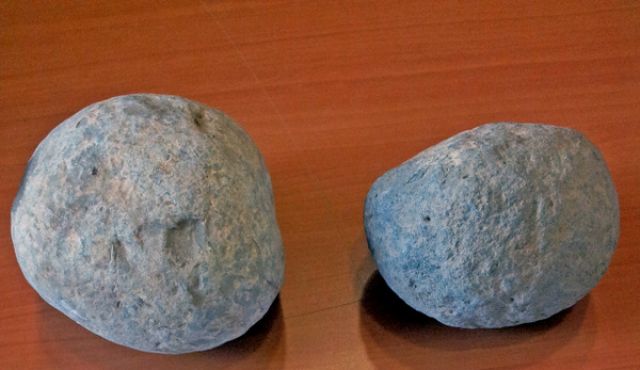Thief returns antiquities after 20 years of constant trouble
The typed message from the unnamed individual was discovered by an employee of the museum, and began, “These are two Roman trebuchet balls from Gamla, from a residential quarter at the foot of the summit”. Strewn among the remains of the town were numerous ballista stones fired by the Roman army, such as the ones returned last week. – Reuters picJERUSALEM, July 13 – A thief struck by misfortune since stealing two artefacts 20 years ago has returned them along with an appeal to others to refrain from plundering antiquities, the Israel Antiquities Authority said today.
The ruins of Gamla, which is part of a nature reserve, are also famous for being a nesting ground for rare Israeli vultures: Gamla used to advertise itself as “the only place in Israel where you can see the vultures from above”. “Please, do not steal antiquities!” read the note written in Hebrew.
‘I stole them in July 1995, and since then they have brought me nothing but trouble.
Gamla, located on the Israeli-occupied Golan Heights, is believed to have been built as a fort some two centuries before the birth of Christ.
The Antiquities Authority said almost 2,000 such stones were found in Gamla. “The stones were manually chiseled on site by soldiers or prisoners”.
Explaining the significance of the projectiles, Dr. Danny Syon, from the Israel Antiquities Authority, said “The Romans shot these stones at the defenders of the city of Gamla, in order to keep them away from the city walls”. But this isn’t the first time a thief has regretted his sin. In the past a 2,000-year-old Jewish coffin was returned after being kept in the bedroom of a Tel Aviv resident until he realized the morbid meaning of the find.
The site of a Roman siege during the 66-73 Jewish revolt against the Roman Empire, Gamla is a symbol of heroism for modern Israel and an important historical and archaeological site and tourist attraction. In another incident, a minister from New York expressed remorse over the decade-old action of a member of his congregation, who had stolen a stone from Jerusalem.








